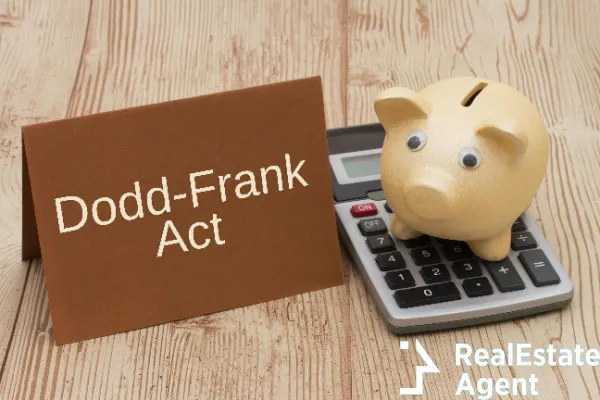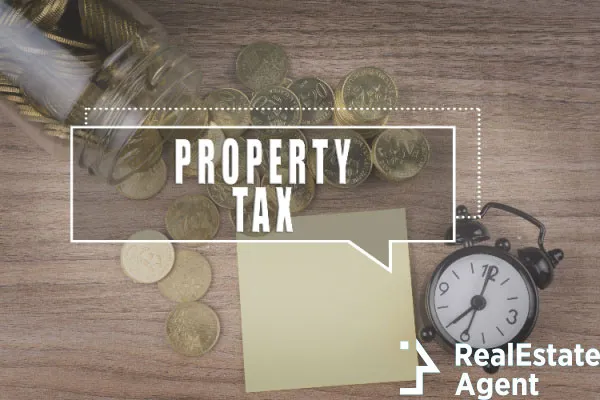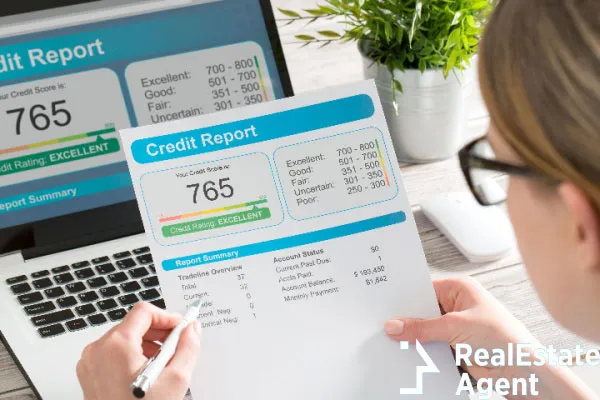 Would you subscribe to the idea that the US real estate market is getting more complex and perplexing by the day? And the current economic situation with looming inflation, recession, and high-interest rates doesn’t make it any easier for those looking for a home or seeking to sell their assets.
Would you subscribe to the idea that the US real estate market is getting more complex and perplexing by the day? And the current economic situation with looming inflation, recession, and high-interest rates doesn’t make it any easier for those looking for a home or seeking to sell their assets.
As we all know, the Fed raised the interest rate, which increased the cost of borrowing money from banks. On the other hand, few investors and house hunters dispose of hard cash to pay for a house upfront. It’s a pickle, and we need to find an escape plan. Could owner financing be one of the possible ways to invest smartly during a recession?
How can you get hold of a property?
People are looking for alternative methods to cut costs and obtain profit. But above all, homebuyers seek to get the property deed as soon as possible. Sellers want to sell their real estate at the highest revenue (return on investment). Besides, real estate investors intend to secure a safe monthly income flow in interest. And, it’s only reasonable.
You can approach buying or selling a home or investing in a property in several ways. Firstly, you can choose the traditional method of purchasing a property with cash vs. a mortgage. Or, you can dig deep into a viable substitute and explore owner financing, its meaning, and how owner financing works.
Let us be your guide on this fantastic journey! We investigate whether owner financing fulfills the promises of cutting costs and getting the deed ahead of time. Additionally, we will also examine whether owner financing is safe.
Owner-financing disclaimer
 Let us stress a vital aspect of owner-financing right off the bat! High-interest rates, property taxes, balloon payments, and renovation costs can be involved in owner-financed properties! For this reason, both parties can expose themselves to long-term financial difficulties.
Let us stress a vital aspect of owner-financing right off the bat! High-interest rates, property taxes, balloon payments, and renovation costs can be involved in owner-financed properties! For this reason, both parties can expose themselves to long-term financial difficulties.
We suggest consulting a professional real estate agent and attorney for this matter! Consider all aspects before signing an owner-financing contract!
How to find owner-financing properties?
Let’s see some legit sources to find owner-financed homes for sale. Primarily, you can contact your expert local real estate agent. They are updated daily on newly listed properties. And if some of them are seller-financed, they will bring you up to speed with them.
In addition, they can explain the meaning of owner financing and how owner financing works. Simultaneously, licensed agents can provide sellers and buyers with essential tips, how-tos, and the ins and outs of owner-financing procedures.
Secondly, you can find ads on real estate sites like Zillow. For your convenience, you can start the search by introducing the keyword “owner-financed properties.” Internet browsing might also be worth your while, as various online real estate intermediaries connect buyers and sellers.
Another recommendation is to search after FSBO (Find for sale by owner) listings in your neighborhood. A seller can post such listings without any middleman.
For this reason, you can contact them directly and discuss the terms.
Imagine yourself in this owner-financing scenario!
 Suppose you want to buy a home, yet the seller won’t knock off a discount from its original price of $300,000. Nonetheless, your bank approves a mortgage for only $200,000. Lastly, you give in and are willing to pay $60,000 as a 20 percent down payment. So, you’ll have to somehow finance the remaining sum of $240,000.
Suppose you want to buy a home, yet the seller won’t knock off a discount from its original price of $300,000. Nonetheless, your bank approves a mortgage for only $200,000. Lastly, you give in and are willing to pay $60,000 as a 20 percent down payment. So, you’ll have to somehow finance the remaining sum of $240,000.
Your seller might consent to make up for the missing $40,000 in the form of a loan. Or, they can finance the entire $240,000 themselves. In both cases, you, the buyer, will pay back the loan monthly plus interest. Regularly, owner financing is designed for the shortest run until the buyer can repay the loan. It helps if you’re family members, friends, or business associates. A personal rapport between you two facilitates confidence.
What is the genuine meaning of owner financing?
In owner-financing situations (often referred to as creative or seller financing,) the home seller finances the purchase with the individual who will purchase the property.
By default, the meaning of owner financing describes the scenario when the seller undertakes the bank’s role. The owner might own the house in cash, and they give it to the buyer through a loan. Or, they have their own mortgage, and the parties will double-mortgage on the asset.
The parties decide to work without the bank (or any other lending institution, for that matter) as an intermediary. Thus, they have eliminated bank costs right off the bat.
Once the parties agree to the terms, they sign an owner-financing contract in which they stipulate the sum of the monthly payment the buyer must meet. Evidently, there are more shades and complexities of the meaning of owner financing. And soon, we will discover that there are better ways to do business.
What should an owner-financing contract contain?
 A solid and legally-binding agreement will shed light on how owner financing works. A lender working with owner financing should disclose to buyers the loan’s terms, the fees associated with the funding, and the interest rate.
A solid and legally-binding agreement will shed light on how owner financing works. A lender working with owner financing should disclose to buyers the loan’s terms, the fees associated with the funding, and the interest rate.
In the agreement, the seller assumes the responsibility to send periodic statements on the loan’s balance and how much of their payment is transferred to interest, principal, charges, amortization schedule, and escrow. To avoid confusion, we recommend you reach out to an expert real estate attorney who can help you study or compile an owner financing document!
How does owner financing work?
Seller-financed deals are more likely to happen in specific circumstances. Firstly, a buyer’s market often favors owner financing because there is a surplus of homes for sale than potential buyers. In other words, the supply of property is larger than the demand. For this reason, a seller can find a buyer easier and faster by providing them with owner financing.
Secondly, the buyer doesn’t want to apply for a fixed-rate mortgage. If you stop to think about it, a thirty-year financial commitment can be a worrying burden. Or a bad credit score prevents them from applying for a loan that will be enough to purchase their dream house. Besides, few buyers enjoy the luxury of paying with hard cash. However, the meaning of owner financing enables them to create a win-win situation.
What is the Dodd-Frank Act, and what does it mean to owner financing?
 We need to address the elephant in the room. You might have heard about the Owner-Financing Restrictions imposed by the Dodd-Frank Act. But first, we must go back in time. In the pre-2007/2008 financial crisis, the banks made several poor decisions and gave bad loans to homebuyers and investors. Unfortunately, they couldn’t always repay their loans. Thus, banks found themselves dealing with a tremendous deficit.
We need to address the elephant in the room. You might have heard about the Owner-Financing Restrictions imposed by the Dodd-Frank Act. But first, we must go back in time. In the pre-2007/2008 financial crisis, the banks made several poor decisions and gave bad loans to homebuyers and investors. Unfortunately, they couldn’t always repay their loans. Thus, banks found themselves dealing with a tremendous deficit.
A set of regulations have been passed ever since to prevent another crisis. The Consumer Financial Protection Bureau came into existence and passed the Dodd-Frank Act in 2010. With stricter government interference, homeowners have fewer options to apply for a loan, and they have to pay higher interest rates. Besides, the loan application guidelines became almost impenetrable (both for banks and consumers.)
The Dodd-Frank Act makes it more challenging for sellers to sell their property with owner financing. Before the legislation, sellers had a blast with seller financing. Now the government attempted to put more regulations on lenders and borrowers alike. Let’s see what are the most notable owner-financing restrictions you must know about!
The Dodd-Frank Act restricts residential mortgage transactions.

Suppose you’re an investor and want to do more than three real estate transactions yearly with a land contract or deed of trust. In that case, you must be a registered mortgage originator or work closely with one. This clause created a particular headache and legal obstacle for investors.
Monthly fees and balloon payments
Moreover, the Act determines that you can’t have a balloon payment earlier than six years. This payment type defines the final loan installment (also known as lump sum) buyers must repay.
The purpose of owner financing was to “keep the loan alive” for four or five years. Then, sellers sought to obtain a balloon payment so the entire balance would come due. In other words, the property buyer must pay off the seller in cash and look for a traditional loan. Thus, the seller can get their money back without waiting for longer (sometimes even decades.) The Dood-Frank Act limited this period to no less than six years.
Sellers have to perform a background credit check on buyers.
Secondly, the Act requires the lender to check whether the borrower can repay the loan. How is this different from a bank verifying a mortgage borrower’s financial background and ability to pay their debt? In fact, it implies the same routine.
On second thought, if these homebuyers already have a steady income, they could apply for a bank loan anyway. And here comes the bummer. Some buyers won’t qualify either for a bank loan or owner financing. Under such circumstances, this limitation takes many homebuyers out of the equation.
However, let’s stress that these regulations apply only to residential mortgage loan transactions, not purchasing vacant lands.
Selling vacant land with owner financing or exceptions to the Dodd-Frank imposed owner financing rules.
The Dodd-Frank Act on owner financing excludes the following instances. Limitations don’t apply to unoccupied lands, rentals, and commercial properties. Additionally, restrictions don’t affect non-consumer buyers such as trusts, corporations, limited liability companies, or partnerships.
Still, suppose the buyer purchases vacant land and builds a home. Then, it’s considered a dwelling place from that moment on. Thus, Dodd-Frank restrictions will come into play. In this scenario, we advise sellers to put in their loan contract that buyers are requested to pay off the loan before building a home on the land.
What are the benefits of owner financing?
 We can’t provide an easy explanation to the question of how does owner financing work. However, if negotiated smartly, owner financing can result in numerous benefits for both parties involved. Before signing a contract, you should consider your financial status, credit history, seller-financing advantages, and legal variables.
We can’t provide an easy explanation to the question of how does owner financing work. However, if negotiated smartly, owner financing can result in numerous benefits for both parties involved. Before signing a contract, you should consider your financial status, credit history, seller-financing advantages, and legal variables.
What perks does owner financing have for buyers?
Buyers don’t require substantial funds to finance a deal. Thus, they don’t rely on banks, (hard-to-qualify-for) home mortgage loans and high-interest rates.
- The most notable advantage is that even regular homebuyers can compete against wealthy real estate investors for a property.
- Secondly, seller financing facilitates the operation, enabling the closing day to happen sooner. Besides, it’s much cheaper since the bank might not be directly involved, if at all. So, there are no fees for bank officers, legal departments, or underwriters. You can also skip the expenses for the loan approval process.
- Thirdly, the downpayment is usually flexible depending on the agreement between the parties. Generally, owner financing is more straightforward. It buys you limited time to repay or refinance the loan.
What are seller financing’s advantages for home sellers?
A seller can also benefit from owner financing.
- Sometimes, they need to sell a property in haste. Since the buyer opted to skip the complex mortgage process, the sale can be closed infinitely faster.
- Let’s consider another situation! Suppose sellers don’t have the chance to give their home a proper face-lift that would potentially boost its value. By impressive upgrades, we don’t refer to exterior and interior home improvements exclusively. We also account for the implementation of cost-effective green energy solutions. Besides, sellers can raise their home’s worth even more by making their property smart.
- In other cases, the revamping costs a fortune and isn’t worth investing in financially. For this reason, they can sell a house as is by choosing seller financing. In the bigger picture, choosing owner financing can result in the seller getting higher rates by loaning the buyer the money than investing it elsewhere. From this perspective, it’s one of the best investment strategies.
- Suppose the deal goes sideways, and the buyer backs out. In that case, the seller can retain the property deed and the downpayment.
What are the disadvantages of owner financing?
 You must have noticed that the Dodd-Frank Act triggered many disadvantages of owner financing. To cover every aspect, we will investigate how seller financing can impact the deal negatively.
You must have noticed that the Dodd-Frank Act triggered many disadvantages of owner financing. To cover every aspect, we will investigate how seller financing can impact the deal negatively.
Buyers, be aware! What are the downsides of owner financing?
Since you might not qualify for a bank loan, you’ll be exposed to certain disadvantages by choosing owner financing.
- Firstly, you might have to accept a higher interest rate than a traditional bank mortgage would imply.
- Another financial burden owner financing would impose on you are the balloon payments. The substantial lump sum means the repayment of your remaining loan. However, the good news is that the Dodd-Frank Act determined that this must not come sooner than six years after the contract has been finalized.
- Secondly, there’s an implied risk that the property seller won’t choose you as their borrower.
- Thirdly, an annoyance (undisclosed to you) can rain on your parade. Suppose the property seller still has to pay a mortgage on the real estate you intend to buy. In that case, their bank can file a claim for reimbursement without delay. We call this a due-on-sale clause.
- And most importantly, the lending institution can demand its money back as soon as you purchase the home. Remember: the due-on-sale clause added to the mortgage contract legally empowers them. If the lender fails to repay the loan, the bank has legal means to foreclose. For this reason, sellers must take measures to avoid foreclosure.
Sellers, these are the disadvantages of owner financing you must know!
We advise sellers to examine the Dodd-Frank Wall Street Reform and Consumer Protection Act before selling a property through owner financing! It is the ultimate source of information to learn how owner financing works post-2010.
- You’ll find out that you can’t ask for a balloon payment earlier than six years, which involves more significant financial risks on your behalf.
- Secondly, you will probably have to work with a mortgage loan originator if you wish to sell more than three properties with owner financing yearly. The originator can be a lending institution, bank, banker, or mortgage broker. They are authorized to finalize a real estate loan transaction.
- Thirdly, suppose you reclaim the asset or the buyer defaults and stops repaying the loan. You might have substantial fixing costs and maintenance fees if the house sustains any damage. Your unforeseen expenses will depend on the actual condition your buyer left the property. And, in the worst-case scenario, you will have a foreclosure on your hands.
Who pays property taxes on owner financing?
 Owner financing most definitely results in monthly cash flowing into sellers’ bank accounts monthly. But who pays property taxes on owner financing for holding real estate? Regularly, the buyer or borrower pays those taxes along with Homeowners Association fees directly to the agency in question. Also, they are responsible for paying insurance premiums.
Owner financing most definitely results in monthly cash flowing into sellers’ bank accounts monthly. But who pays property taxes on owner financing for holding real estate? Regularly, the buyer or borrower pays those taxes along with Homeowners Association fees directly to the agency in question. Also, they are responsible for paying insurance premiums.
Sellers must include in the owner-financing contract who is responsible for striking a balance or paying the taxes. Another option is for the seller to take care of all tax bills and hand them over to the buyer. Note that owner financing contract clauses don’t work as textbook definitions. They can be structured as the parties feel fit.
Who holds the deed in owner financing?
Similarly to our previous section, the contract establishes the person holding the deed in owner financing. However, the seller will regularly hold onto the deed until the buyer settles all payments and repay the loans. If you start to think about it, it’s only logical. Who would continue paying their loans if the deed is already in their name?
The deed transfer will be set the day the borrower pays the debt in full. And let’s not forget! Buyers can also refinance it with a loan originating from another lender.
Check your credit score and decide: is owner financing a good idea?
 The core foundation of how owner financing works centers around the concept that the property owner or seller will function like a bank. So, if you, the buyer, can’t qualify for a traditional bank loan, then owner financing is a good idea. However, the Dodd-Frank Act relatively undermined this advantage. Limitations apply if you wish to buy residential real estate, not vacant land. Note that if you can apply for a conventional loan at a bank, that mortgage comes cheaper and safer than an owner-financed loan.
The core foundation of how owner financing works centers around the concept that the property owner or seller will function like a bank. So, if you, the buyer, can’t qualify for a traditional bank loan, then owner financing is a good idea. However, the Dodd-Frank Act relatively undermined this advantage. Limitations apply if you wish to buy residential real estate, not vacant land. Note that if you can apply for a conventional loan at a bank, that mortgage comes cheaper and safer than an owner-financed loan.
There’s another crucial thing to bear in mind here. Suppose you go with owner financing and skip the bank routine altogether. Then, paying the loan to the seller won’t count in your credit report! Therefore, if you strive to improve your bad credit score. Owner financing won’t help you with that.
Without banks, purchasing property closes faster with owner financing.
Seller financing can be a good idea if you prefer cheaper and faster closings than the (usually) thirty-day period. Home inspections, appraisals, and the (excruciatingly long) loan application don’t play a role here. It’s entirely up to the seller when they’re willing to give the buyer the loan.
On the downside, the process will be more expensive in the long run. Plus, sellers might have to run a credit check on the buyer to ensure they have a stable source of income.
Note that owner financing has benefits and disadvantages for both parties, and they can be interchangeable depending on which side you are.
A word of friendly advice about owner financing
 With owner financing, you should expect more expensive costs (double or even triple interest) than a traditional mortgage would imply. Also, if banks consider a borrower a risky buyer, sellers would probably think the same.
With owner financing, you should expect more expensive costs (double or even triple interest) than a traditional mortgage would imply. Also, if banks consider a borrower a risky buyer, sellers would probably think the same.
Often, a seller already has a mortgage on the house. Then, they offer the seller mortgage on top of the original one. Suppose the owner accepts your money but decides not to pay their own mortgage. In that case, the bank will foreclose on the owner’s mortgage.
For this reason, we suggest buyers check a property’s mortgage situation at the County Property Records Lookup.
Land contracts contain an expiration date. It offers you three options: settle the balloon payment, refinance the property, or leave the premises. And moving out means no equity whatsoever! In other words, you don’t have genuine property ownership! Again, buyers should check real estate records because the seller might need to record the sale with the county.
Conclusion
Overall, we don’t consider owner financing a good idea, only an okay short-term real estate investment strategy. For sure, seller financing offers homebuyers a helping hand if they can’t apply for a conventional bank loan. Still, in the long run, the seller will ask for higher interest and balloon payment, leaving your financial resources extinguished.
Sellers should also consider choosing owner financing because the Dodd-Frank Act introduced strict regulations in lending money. For instance, after the third owner-financed deal within the same year, they will need to check their new borrowers’ credit scores.
Have you ever bought or sold a property using the owner-financing strategy? What was your experience? Your feedback will be appreciated!
If you enjoyed reading this piece, please share it with your friends on social! And don’t forget to come back with more revealing articles on the current state of the US real estate market!
















Have a question or comment?
We're here to help.